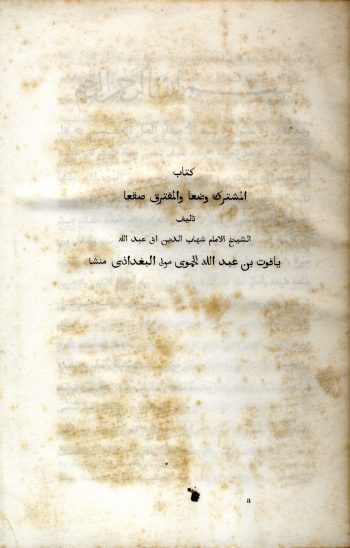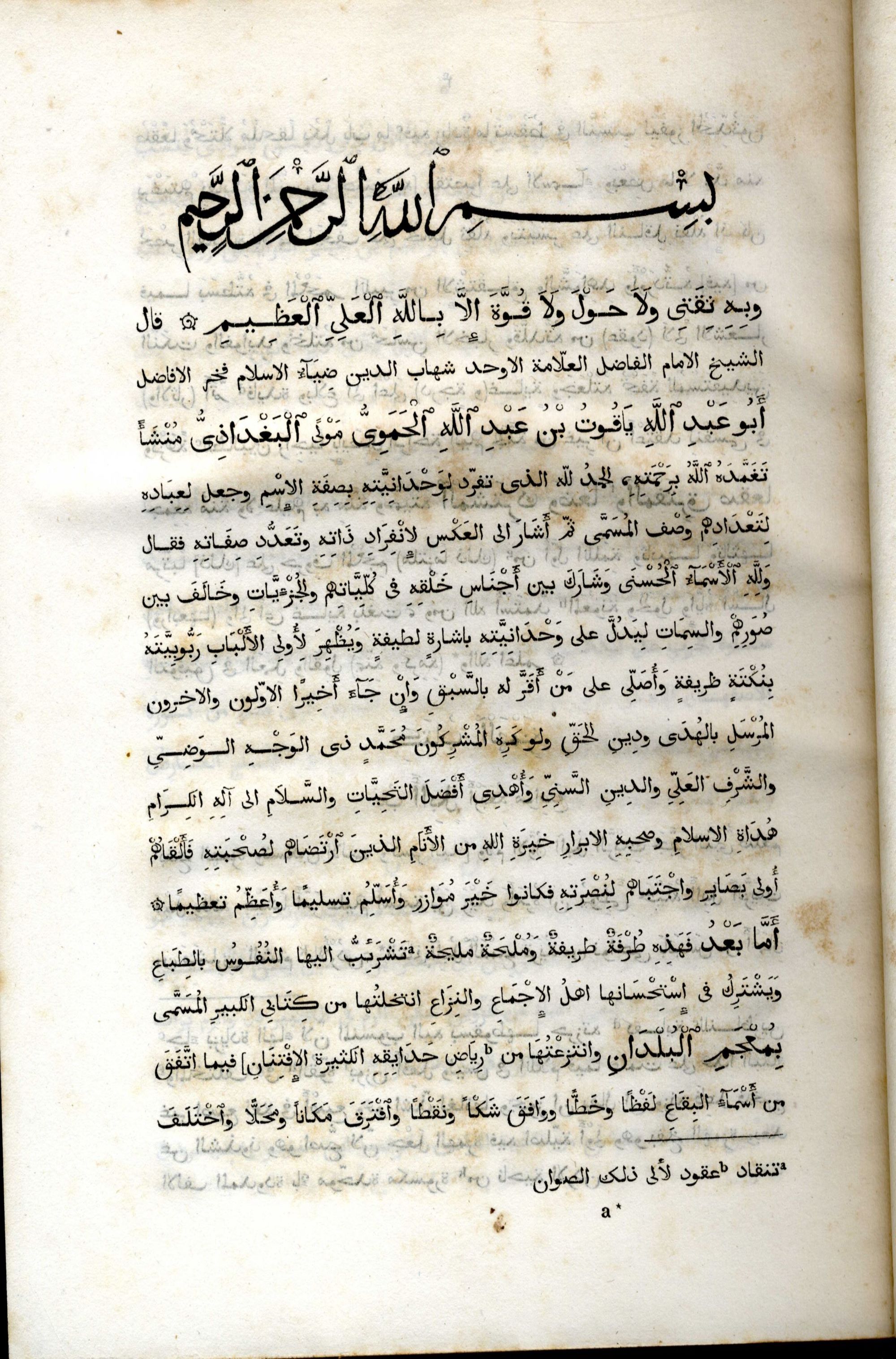Jacut’s Moschtarik, das ist: Lexicon Geographischer Homonyme. Aus den Handschriften zu Wien und Leyden hrsg. Kitab Al-Mushtarak Wad’an Wal Muftaraq Saq’an.
Al-Hamawi, Yakut al-Rumi al-Baghdadi, Shihab Al-Din Abi Abdallah/ Edited & Introduced By Ferdinand Wustenfeld.
Synopsis
Yaqut al-Hamawi (Yakut al-Hamawi, 1179–1229) was an Arab geographer and historian, originally from Syria. He travelled extensively in Egypt, Syria, Iraq and Persia. His Mu’jam al-Buldan, a geographical dictionary that includes biographical, historical and cultural data, is a primary source in Arabic scholarship. Yaqut composed this work during the final decade of his life and it was later partially translated as The Introductory Chapters of Yaqut’s ‘Mu’jam al-Buldan; the Mu’jam al-udaba’ was translated as Yaqut’s Dictionary of Learned Men. The Kitab, the final draft of which he completed in 1228, is significant not only for its encyclopaedic quality, but also for its synthesis of Greek and Arab views on science and cosmology. In addition, Yaqut was one of the last scholars to gain access to the libraries east of the Caspian Sea, which today are the former Soviet republics of Central Asia – libraries that were, along with the lands and cities around them, devastated in the Mongol onslaught.
Bibliographic references: BNF, Bulac, Strasbourg.








